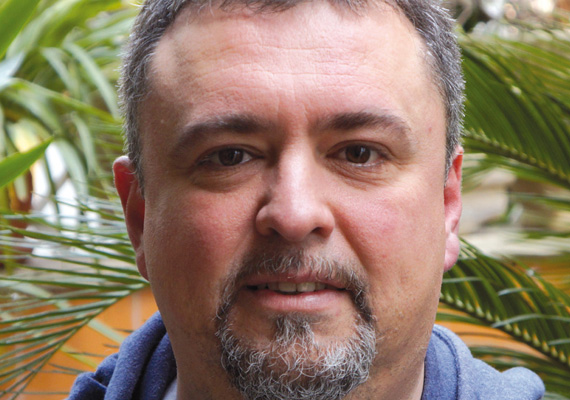Emanuele Nespeca
Producers on the Move 2016 – Italy
- Emanuele Nespeca, producer of Banat the Journey, will be at the Cannes Film Festival as part of the Producers on the Move programme

Emanuele Nespeca, producer of Adriano Valerio’s Banat (The Journey) [+see also:
film review
trailer
film profile] alongside Mario Mazzarotto, will be at Cannes Film Festival as part of Producers on the Move. Organised by European Film Promotion and coordinated for Italy by the Luce Cinecittà film institute, the initiative allows twenty emerging European producers to take part in networking opportunities from 11 to 22 May. Aside from Banat, which was co-produced with Romania, Bulgaria and Macedonia, the society for independent production and distribution, Movimento Film, has also worked on The Future [+see also:
film review
trailer
film profile] by Alicia Scherson (Sundance Film Festival 2013) together with German company Pandora Filmproduktion, La Ventura, Jirafa Films, and Astronauta. Emanuele Nespeca has made numerous documentaries with Solaria Film, and currently has two fictional co-productions in development.
Cineuropa: Being selected for Producers on the Move rewards years of work…
Emanuele Nespeca: I’m happy, even though I would have liked this recognition to come sooner. Despite being over 40 years old, professionally I still feel quite young in terms of the Italian film scene, which isn’t that young itself. But I did expect it sooner because I have a small CV that I’ve built by doing what I think are quality projects, even if they haven’t been met with great “public success”, as they say. But I believe the editorial and productive road I’ve taken has been key, from way back in 2005 until now, with the all-important year for me being 2010.
The year you produced Notizie dagli scavi [+see also:
trailer
film profile] by Emidio Greco?
Yes, I’m very attached to Notizie dagli scavi because I had the pleasure of working with a master of cinema. It’s also the last of my films to be completed. It is a perfect example of what a true Italian film used to be. It also had a certain level of exposure because of the struggle to make it with minimal resources.
Your work in international co-production has also been recognised. What are the positive aspects of co-producing?
Co-producing is a commitment and it eats into your budget, but it’s also the creative part of my job. When someone decides to co-produce, they are injecting an artistic quality to the film. I don’t do standard co-productions that are just for moneymaking purposes. I try to tailor them to each individual project. Sometimes it’s easy because the script outlines what has to be done, whereas other times it’s a case of finding out which countries are more attuned to that author or that project. The aim is also to try to broaden the potential audience of the project, creating a more “European” product that is able to transcend national boundaries.
You have a few projects in development. The first is 7 Days [+see also:
trailer
film profile] by Rolando Colla, in post-production. Can you tell us about it?
We started with Rolando Colla over a year ago on this minority co-production with Switzerland [Peacock Film]. Rolando is one of the most prominent directors and screenwriters in Switzerland. I really liked his last film, Summer Games [+see also:
film review
trailer
interview: Rolando Colla
film profile], and when he suggested co-producing, seeing as he usually goes around Italy, it seemed like a very interesting opportunity to work with such a meticulous writer. It was a great experience to work on that love story, set entirely in Sicily. It’ll be in cinemas very soon. White flowers, on the other hand, is a bizarre project. I’ve been following these two writers, Marco De Angelis and Antonio Di Trapani for a long time, who always create completely experimental works, with very strong, harsh language. They love to depict Japan and, in the end, this film will need a Japanese co-producer too. It’ll be an interesting collaboration because Japanese culture is very different to our own. Filming should start in September. It’s been a difficult film to both produce and distribute on such a low budget, but we’ve been helped somewhat by the Department of Philosophy, Communication and Drama at the University of Roma Tre. Lastly, Glassboy by Samuele Rossi, co-produced with Austria and Slovakia, is an attempt to do something more “commercial”. It’s based on a novel by Fabrizio Silei and is aimed at children aged between nine and 12. The idea is to bring children’s cinema to Italy, which is so far a largely unexplored genre. It’s a genre that works well in Europe but the films tend to come from The Netherlands, Belgium, Norway, Finland, Denmark, France and Germany.
(Translated from Italian)
Did you enjoy reading this article? Please subscribe to our newsletter to receive more stories like this directly in your inbox.















